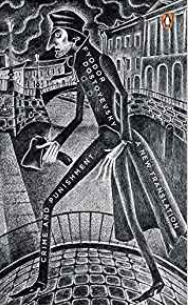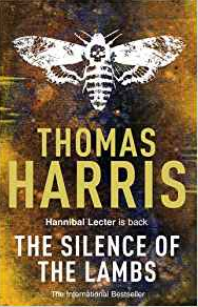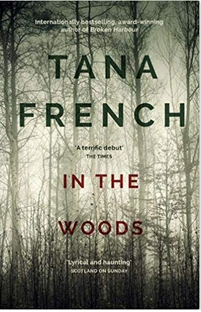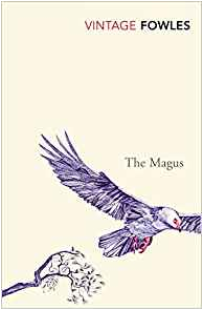|
I'm delighted to welcome novelist Daryl Rothman to my blog! Daryl has written this guest post, The Ties That Bind: Five Traits Shared by Great Suspense Novels. Over to you, Daryl! You just can't put it down...  Have you ever experienced that with a book? Most people have, if they’re lucky. Of course, I’ve lost myself so thoroughly in a great novel that I’ve run late for important engagements, snuck in reading time at work, and read entire days away. And it’s glorious. But have you ever stopped and considered what kinds of books most commonly ensnare you in this manner? Any great book can do so, but for many people, suspenseful, psychological thrillers comprise the most usual suspects. The brilliant, beautiful psychotherapist whom we learn will kill her husband; the murder of a 12-year-old girl which evokes haunting memories for an Irish detective; the fiendish plans and eventual execution of murder and attempts at moral justification in mid-19th-century Russia; a brilliant but profoundly troubled computer hacker who finds herself in the crosshairs of espionage and murder in high-society Sweden; a fledgling FBI agent tasked with culling secrets from an imprisoned murderer before another serial killer strikes again. What are the common traits that keep us on the edge of our seats (or upright in our beds, biting our nails as we compulsively, helplessly turn page after scintillating page)? Why can’t we put these books down? I am a bit leery of authoritative, definitive lists—the greatest beauty of great books, after all, is that they belong to the reader, gifted by talented scribes, suffused with memorable characters and compelling details, plots and stories, but belonging to each reader nonetheless, to see, feel and absorb as only she can. So any list detailing traits of great books is inevitably incomplete. But after considering my own favorites and other perspectives, I have compiled here a list of 5 traits I believe many great suspense novels share, and offered examples for each. 1. Front-row seats  Great suspense novels confer upon readers the ultimate of vantage points. Often, though not always, this manifests via dramatic irony, wherein the reader is privy to something important that a main character(s) is not. In "The Silent Wife", we come to know—and are directly advised that the protagonist does not know—that she will commit murder. Top authors are not coy with their readers (despite the plot twists we’ll discuss a bit further down)—they display complete trust in us, bestowing ringside seats to the show. In Dostoevsky’s classic "Crime and Punishment", we again learn early of nefarious plans and so the suspense resides not in discovering Raskolnikov’s murderous contemplations, but in whether and when he shall indeed execute them, and what the ramifications will be. Foreshadowing, when properly presented, lurks in this dark realm as well, gilding our gaudy seats with golden touches of spine-tingling hints and anticipation. 2. Clockwork universe  In most good books, and most assuredly in great suspense novels, the clock is ticking. Sometimes literally: 24 hours until the bomb explodes… one week before the mob returns for their money… 60 minutes (naturally) before the sands pass through the hourglass in the witch’s castle. Even if it is not stated so explicitly, there is almost always a race against time in one way or another—some decision or action which must be made or taken within SOME limited time frame in order to achieve or avoid a pretty significant result. Many of the best thrillers have a trigger action, that act or decision which, whether intentional or otherwise, sets the gears of the story’s plot in motion. Whilst not a novel, the recently concluded and highly-acclaimed drama "Breaking Bad" offered a perfect example of a trigger mechanism: when Walter White makes the decision to cook and sell meth, he triggers a series of dramatic, violent, often bizarre but in the end seemingly inevitable events. This article does a great job elaborating, and is a worthy primer on many of the principles of the clockwork universe in fiction. But back to the suspense novels, and the matter of ticking time: "The Silence of the Lambs" and "The Girl with the Dragon Tattoo" both mine the murky depths of serial killers, and the reader gets and feels the urgency. The protagonists must find the killer before he claims his next victim. A literary clockwork universe also is tinged with notions of destiny and fate—tension is heightened as the reader is imbued with the realization that the protagonists are not only on a collision course with the antagonists, but that the odds seem somehow preordained against them. 3. Unbelievably (yet made believable) high stakes  We must not only care about the protagonists, but also about what they care about. A protagonist may be richly developed, beautifully-textured and wholly relatable… yet if all she cares about is whether the prolonged winter has adversely affected her spring garden, this is probably insufficient to compel the reader to keep turning pages. Ah, but if the prolonged winter has adversely affected her spring garden, in which she was growing a hybrid plant whose seeds contained the cure to a worldwide pandemic, suddenly the stakes have soared higher. In “Lambs” and “Dragon Tattoo” the stakes are pretty darn clear—stopping a serial killer is about as intense as it gets—but even taut tales of murder are often suffused with additional, more nuanced stakes. "In the Woods" is the story of an Irish detective also on the trail of a killer, but the pursuit stirs embers of a long-repressed trauma directly connected to the crimes he’s investigating. Throw in an intense and ultimately ill-fated romance with his partner, and the stakes for Detective Ryan are not only high, but layered and complex: can he cope with the awakening memories which begin to plague him anew?... can he and Det. Maddox navigate the murky waters of their smoldering relationship while remaining focused enough to solve the deepening mystery? But it’s more than just really high stakes—the higher they are, the more intense or even fantastical—the greater the burden on the author to make them seem plausible. This is accomplished not merely by creating stakes which resonate with a reader’s notions of possibility—for so often we read to escape the constraints of reality and limited possibility—but by creating a world wherein it seems possible—even inevitable—for the characters. 4. Twists and yet more twists  A great thriller has twists—usually lots of them. But if we are to distinguish between ordinary and extraordinary works of suspense, it again comes down to execution (sometimes literally). J But the great ones don’t steep their manuscript full of twists merely for the sake of it, or for (almost always) fleeting shock value alone. The best twists knock us on our backsides but we gladly bolt back up, smiling: thank you sir, may I have another? They knock our socks off and we revel in the surprise yet perhaps even gently chide ourselves for not seeing it coming but also loving that we didn’t. Fowles’ "The Magus" is replete with dizzying, imaginative twists, yet when taken in composite they thread together in the tapestry of the psychological playground (god games) the author has presented. I’ve had the privilege of guest posting for speculative fiction author and owner of the highly-acclaimed "Helping Writers Become Authors" website K M Weiland, who wrote a fantastic post on how to write killer plot twists. Note her exhortation early on: poorly executed twists are not only ineffective but can be counterproductive and even insulting. The great ones get it right. 5. When all's said and done, CHARACTER  This is so obvious as to become all-too-often-neglected. There is a tendency when pondering literary genres to become so fixated upon the various traits and devices that define each. To wit, this post. Here we are dissecting common threads which weave through great suspense novels. And this is good and well for a discussion of what we love to read and why, but a danger lurks for the scribe who loses herself in these considerations. An obsession with assuring one has included all requisite components and devices can result in a work that is gimmicky and trite. Look at me, I’m a suspense novel—did you see all those great twists? Eh? Eh? Meh. The great thrillers unveil these components seamlessly, seemingly effortlessly (I say seemingly because great writing is hard work) and takes us for the ride of a lifetime. But even for those which have nailed every other great element, if they fail to deliver memorable characters, the work will ultimately ring hollow, fall flat. Strong characterization is incumbent upon any great story, even more so, I’d argue, in great thrillers, for even though conventional wisdom may suggest successful orchestration of all other suspense elements perhaps minimizes the requirement of epic characters, the opposite is in fact true: terrific plotting, harrowing danger, cliffhanger twists all harbor the potential to outshine the characters themselves. But the best suspense novelists understand their work will be all the more riveting, resonate more enduringly, if all the components complement, rather than compete with one another, and strong characters are an essential ingredient. What do you think of first when I mention "Silence of the Lambs"? A haunting psychological expose on the twisted minds of serial killers and the inner-workings of the FBI? Maybe. But more likely you think of him, the wonderfully puerile Dr. Hannibal Lecter. Or her, the sublimely vulnerable but fiercely courageous Agent Starling. Characters. They are the living vessel through which all the other elements find voice. Lists and resources When these and the myriad additional traits of great suspense novels come together, it is something to behold. Symphonic. Scintillating. Evoking and provoking. More than anything, one hell of a read. Here are some great lists of terrific suspense novels: https://www.goodreads.com/shelf/show/psychological-suspense https://www.amazon.com/Best-Sellers-Books-Psychological-Thrillers/zgbs/books/10491 https://www.ranker.com/list/best-suspense-novels/ranker-books What do you think? What are some of your favorite suspense novels and what were the traits that grabbed you the most? Please share your thoughts in the comments! Thank you, Daryl! I'd like to thank Daryl Rothman for this terrific blog post. Daryl is a father, author, early childhood leader and public speaker. He received his BA from the University of Illinois, MSW from Washington University and is a licensed clinical social worker. His website features his blog, short stories, publications, guest interviews, and news about his novels. He has guest-blogged for K M Weiland, CS Lakin, Joanna Penn, Firepole Marketing and published flash fiction for The Hoot and flash fiction for Kal Ba Publishing. Daryl may be found on Twitter, Linked In and Google+. From early in life he harbored three aspirations: become a father, become a writer, and become a ballplayer for his hometown Cardinals. He is blessed to have achieved the first, is happily continuing his journey regarding the second and he will neither confirm nor deny holding out hope for the third.
0 Comments
Leave a Reply. |
Categories
All
Subscribe to my blog!
Via Goodreads
|
Join my Special Readers' group and receive a free copy of 'Blackwater Lake'!
|
Privacy policy Website terms and conditions of use
Copyright Maggie James 2018 - current date. All rights reserved.
Copyright Maggie James 2018 - current date. All rights reserved.
 RSS Feed
RSS Feed
